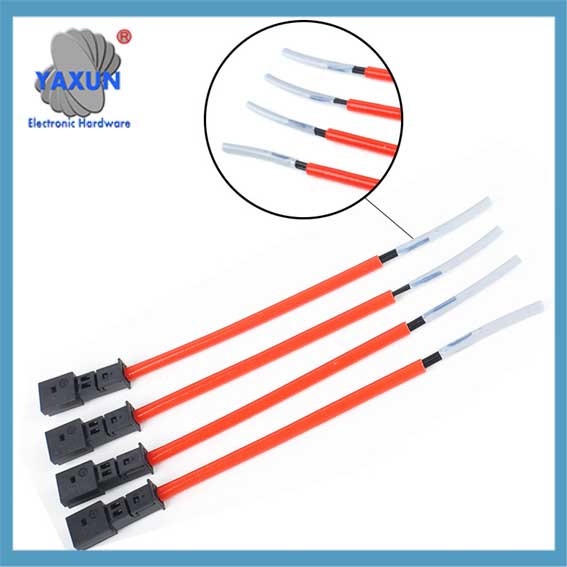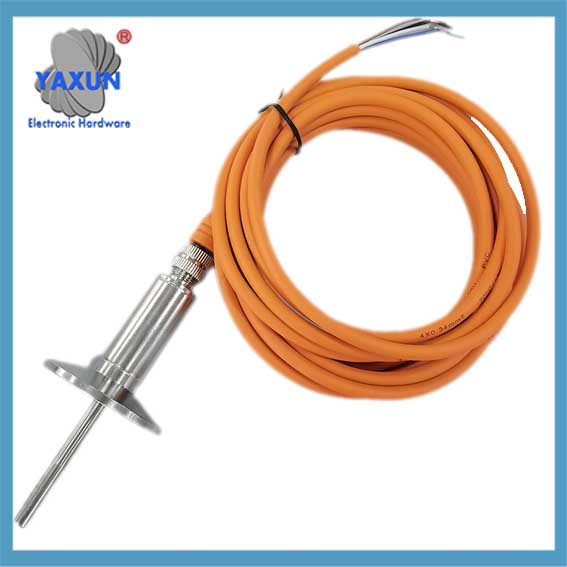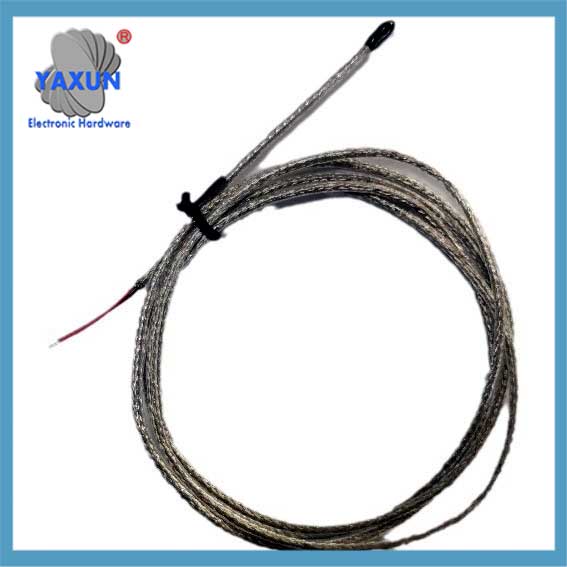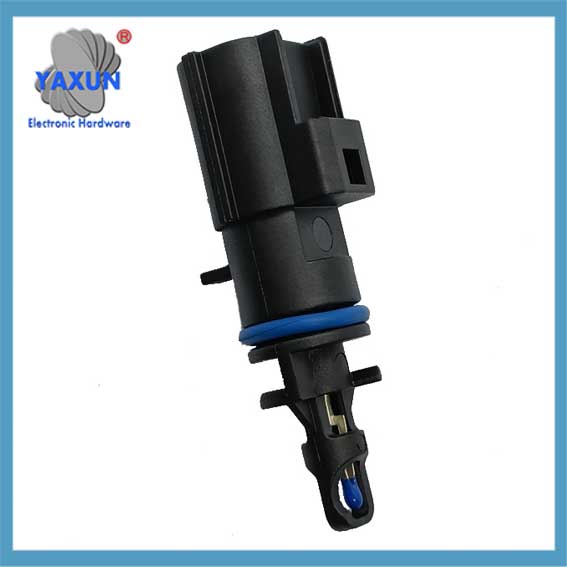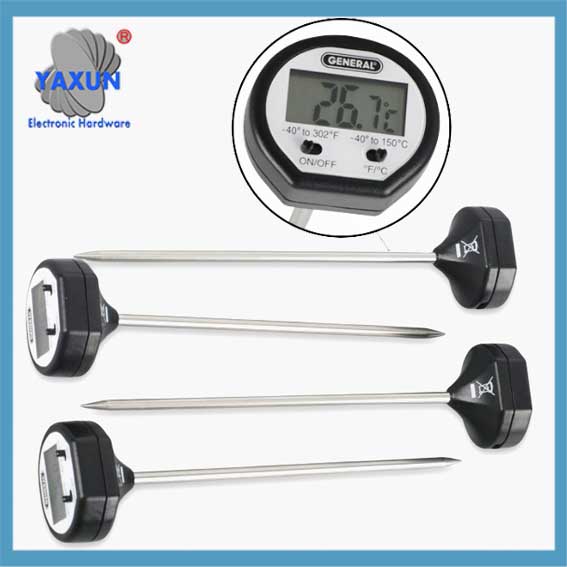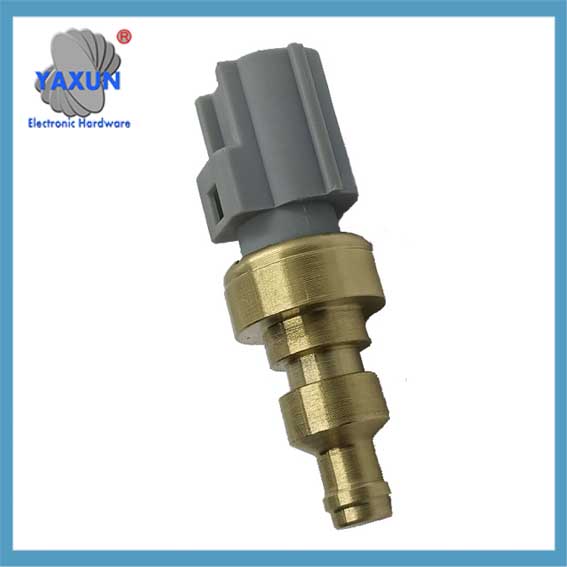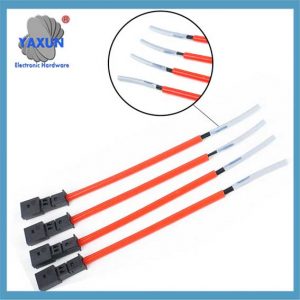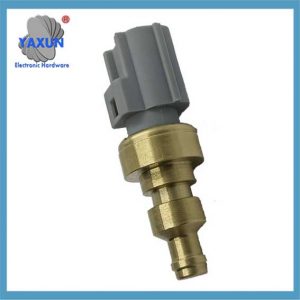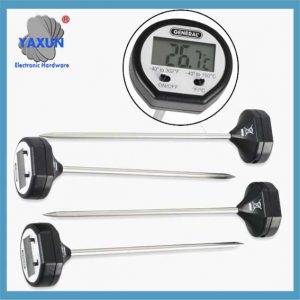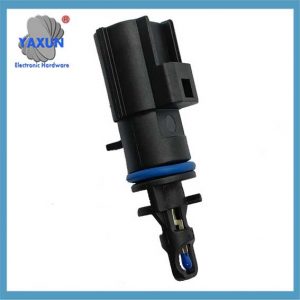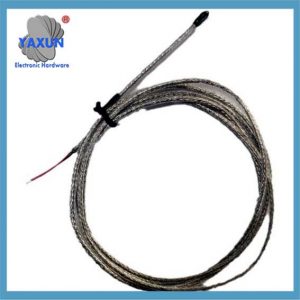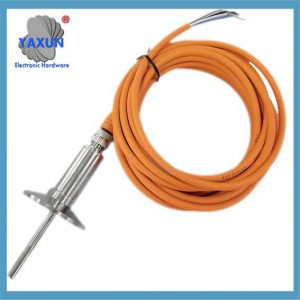Categorias de Produtos
- Disjuntor térmico 20
- Porta-caixa de fusíveis 36
- Sensor de temperatura 67
- Interruptor térmico 64
- Fusível do carro 19
- Fusíveis aparafusados 7
- fusível térmico 32
- fusíveis de montagem em superfície 12
- termistor 22
- Suporte de fusível para montagem em PCB 27
- Chicote de fiação 6
- Porta-fusíveis de lâmina 17
- termostato 46
- Fusível elétrico 14
Etiquetas de produto
Postagens recentes
Aplicação de sensores de sonda de temperatura?
Resistor térmico, termopar, chip sensor digital NTC, PTC, PT100, DS18B20 Sensores de sonda de temperatura são amplamente utilizados em muitos campos. Aqui estão algumas das principais áreas de aplicação: sensores de sonda de temperatura são amplamente utilizados em muitos campos, e fornecem suporte técnico importante para monitoramento e controle de temperatura em diversos setores. Se você tiver cenários ou necessidades específicas de aplicação, Posso fornecer sugestões mais detalhadas de seleção e uso.
Resistor térmico, termopar, chip sensor digital NTC, PTC, PT100, DS18B20 Sensores de sonda de temperatura são amplamente utilizados em muitos campos. Aqui estão algumas das principais áreas de aplicação:
Industrial Automation: In industrial environments, temperature probe sensors are used to monitor temperature changes in various equipment and production processes to ensure the normal operation of equipment and product quality. Por exemplo, in the chemical, petroleum, indústrias metalúrgicas e outras, temperature probe sensors can monitor the temperature of equipment such as reactors and pipelines in real time to prevent equipment damage or product quality problems caused by excessively high or low temperatures.
Medical Industry: In the medical field, temperature probe sensors are widely used in medical equipment, body temperature monitoring instruments and drug storage equipment. They can accurately measure the patient’s body temperature, Condições de temperatura ambiente e armazenamento de drogas, providing important reference information for medical personnel to ensure that patients receive timely and effective treatment.
Automotive Industry: In the automotive industry, temperature probe sensors are used to monitor the temperature of electric vehicle motors, capacitores, Conversores DC, sistemas de carregamento, and automobile engines, caixas de câmbio, air conditioning systems and exhaust systems. These sensors can monitor the temperature of various liquids and gases in real time to ensure that the car can operate normally under various working conditions.
Agriculture and Food Processing: In the field of agriculture and food processing, temperature probe sensors are used to monitor the temperature changes of agricultural products and foods during storage, transportation and processing. Por exemplo, in greenhouses, temperature probe sensors can monitor the indoor temperature in real time, provide farmers with accurate temperature information, and help them better control the greenhouse environment. In cold storage and food processing equipment, these sensors can ensure that the storage and processing temperatures of food and agricultural products meet the standards and ensure food quality and safety.
Air Conditioning and Refrigeration Industry: In the field of air conditioning and refrigeration, temperature probe sensors are used to monitor and adjust the temperature of air and refrigeration media. They can ensure that household air conditioners, commercial refrigerators and industrial refrigeration equipment can operate normally under various working conditions, providing people with a comfortable living and working environment.
Military and Aerospace: In the field of military and aerospace, temperature probe sensors are used to monitor the temperature of various key equipment and systems. Por exemplo, in the engines and propulsion systems of aerospace vehicles such as military aircraft, missiles and rockets, these sensors can monitor the temperature of components such as combustion chambers, turbines and nozzles in real time to ensure the normal operation and safety of engines and propulsion systems.
IoT Industry: With the development of IoT technology, temperature probe sensors are increasingly used in logistics and supply chain management. They can monitor the temperature of goods during transportation and storage in real time, ensuring the quality and safety of cold chain transportation and storage.
Resumindo, sensores de sonda de temperatura são amplamente utilizados em muitos campos, e fornecem suporte técnico importante para monitoramento e controle de temperatura em diversos setores. Se você tiver cenários ou necessidades específicas de aplicação, Posso fornecer sugestões mais detalhadas de seleção e uso.
Temperature probe (NTC, PTC, PT100, DS18B20) sensors are used in a wide range of applications to measure the temperature of liquids, solids, and gases across various industries, including manufacturing processes, Monitoramento ambiental, medical diagnostics, Sistemas HVAC, automotive engines, and power generation, essentially anywhere precise temperature control is needed to ensure safety, quality, and operational efficiency; common applications include monitoring temperatures in industrial boilers, food processing equipment, chemical reactions, and even within the human body during medical procedures.
Temperature Sensor Types
1. Coeficiente de temperatura negativo (NTC) termistor
A thermistor is a thermally sensitive resistor that exhibits a continuous, small, incremental change in resistance correlated to variations in temperature. An NTC thermistor provides higher resistance at low temperatures. As temperature increases, the resistance drops incrementally, according to its R-T table. Small changes reflect accurately due to large changes in resistance per °C. The output of an NTC thermistor is non-linear due to its exponential nature; however, it can be linearized based on its application. The effective operating range is -50 para 250 °C for glass encapsulated thermistors or 150°C for standard thermistors.
NTC thermistor is a small size ethoxy-resin-coated thermistor. Used for temperature measurement, NTC(coeficiente de temperatura negativo) thermistors whose resistance decreases with increasing temperature.
NTC thermistors can be used as electronic circuit elements for instrument temperature compensation and cold end temperature compensation in a variety of applications, providing versatility for automated machine control and industrial instrumentation.
Widely used in household appliances, air conditioning equipment, heating equipment, electric thermometer, liquid level sensor and so on.
Small in size, it can measure the temperature of voids, cavities and blood vessels in organisms that cannot be measured by other thermometers;
These thermistors are easy to use, and the resistance value can be arbitrarily selected between 0.1 and 100kΩ, with good stability and strong overload capacity.
2. Detector de temperatura de resistência (IDT)
A resistance temperature detector, or RTD, changes the resistance of the RTD element with temperature. An RTD consists of a film or, for greater accuracy, a wire wrapped around a ceramic or glass core. Platinum makes up the most accurate RTDs while nickel and copper make RTDs that are lower cost; however, nickel and copper are not as stable or repeatable as platinum. Platinum RTDs offer a highly accurate linear output across -200 para 600 °C but are much more expensive than copper or nickel.
3. Termopares
A thermocouple consists of two wires of different metals electrically bonded at two points. The varying voltage created between these two dissimilar metals reflects proportional changes in temperature. Thermocouples are nonlinear and require a conversion with a table when used for temperature control and compensation, typically accomplished using a lookup table. Accuracy is low, from 0.5 ° C a 5 °C but thermocouples operate across the widest temperature range, from -200 ° C a 1750 °C.
4. Semiconductor-based temperature sensors
A semiconductor-based temperature sensor is usually incorporated into integrated circuits (ICs). These sensors utilize two identical diodes with temperature-sensitive voltage vs current characteristics that are used to monitor changes in temperature. They offer a linear response but have the lowest accuracy of the basic sensor types. These temperature sensors also have the slowest responsiveness across the narrowest temperature range (-70 ° C a 150 °C).
Key application areas of temperature probe sensors:
Industrial Processes: Monitoring temperatures in manufacturing processes like chemical reactions, food production, metal processing, and power generation to maintain quality and safety.
HVAC Systems: Regulating heating and cooling systems in buildings by monitoring air temperatures.
Automotive Industry: Monitoring engine coolant temperatures to prevent overheating.
Medical Diagnostics: Measuring body temperature through rectal or ear probes;
Environmental Monitoring: Assessing water temperatures in reservoirs and boreholes to monitor environmental conditions;
Research and Development: Studying temperature variations in experiments and testing processes;
Construction Monitoring: Checking concrete curing temperatures to ensure proper structural integrity ;
Energy Production: Monitoring temperatures in power plants and renewable energy systems;
Contate-nos
Aguardando seu e-mail, responderemos dentro de 12 horas com informações valiosas que você precisava.
 English
English العربية
العربية Български
Български 粤语
粤语 中文(简体)
中文(简体) 中文(漢字)
中文(漢字) Nederlands
Nederlands Suomi
Suomi Français
Français Deutsch
Deutsch Ελληνικά
Ελληνικά Magyar
Magyar Italiano
Italiano 日本語
日本語 한국어
한국어 Polski
Polski Português
Português Română
Română Русский
Русский Slovenščina
Slovenščina Español
Español Svenska
Svenska ภาษาไทย
ภาษาไทย Türkçe
Türkçe Tiếng Việt
Tiếng Việt
